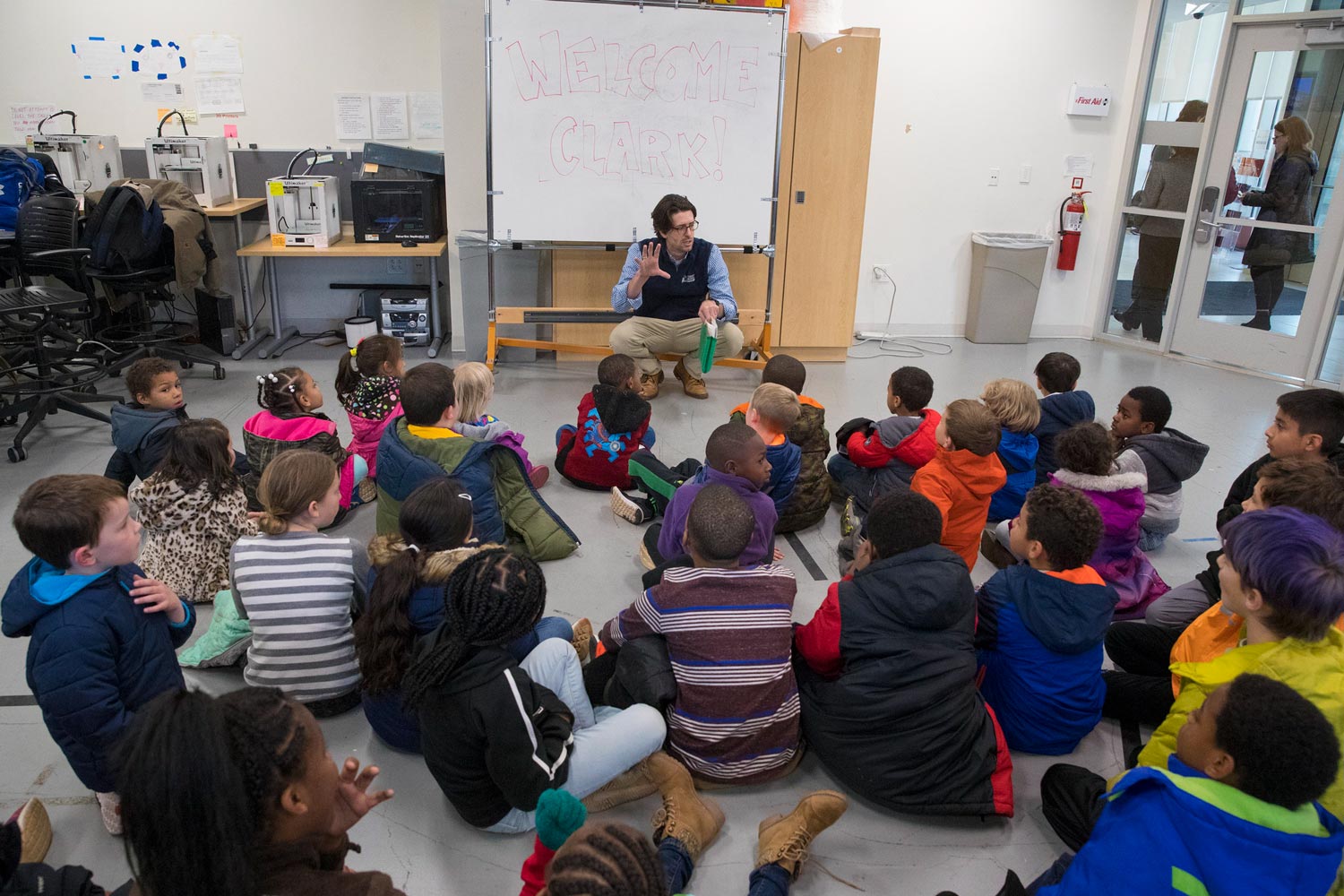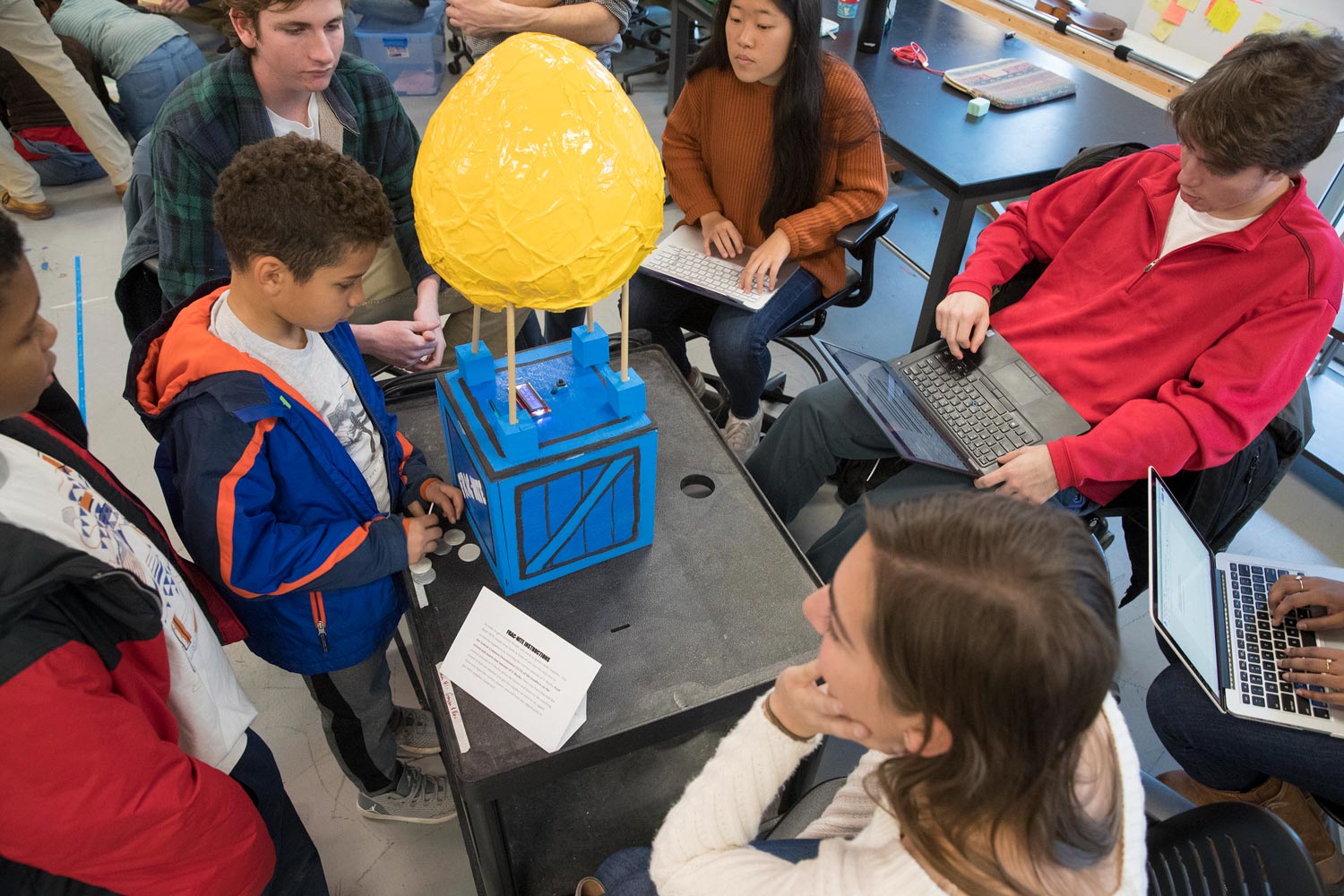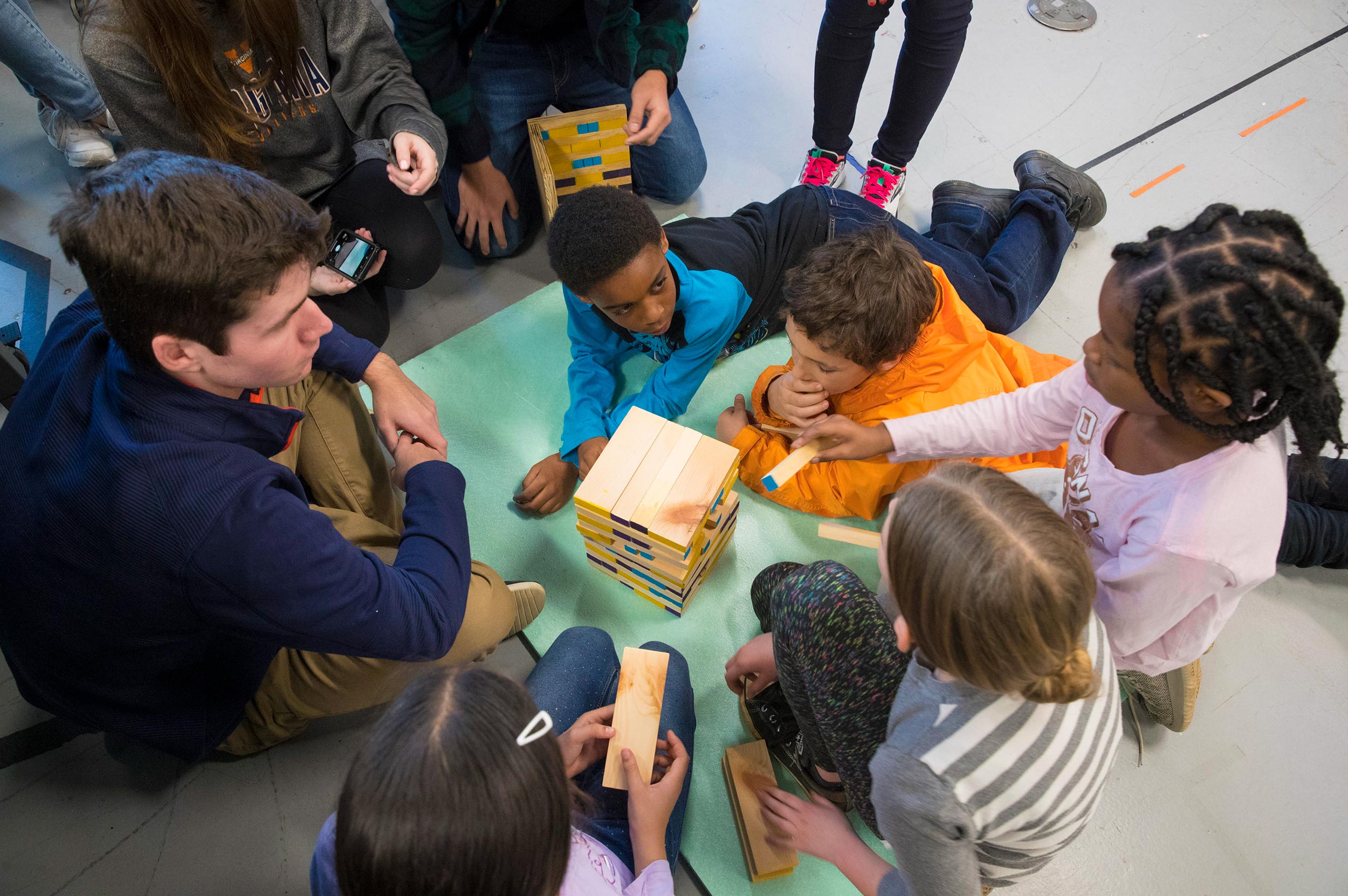The fourth-grade students laughed as the pile of pine blocks cascaded to the concrete floor, making a clattering sound that resonated throughout room 120 of the University of Virginia’s Rice Hall. Their tower had tumbled down after they removed blocks representing fractions, destabilizing the structure.
The youngsters from Clark Elementary School in Charlottesville were part of a group of elementary students who were “play-testing” fraction-teaching educational games designed by first-year engineering students at the University. Similarly, a group of Clark kindergartners went to room 242 to test counting games.
Engineering professors Reid Bailey and Greg Lewin’s students designed the games during the fall semester, getting input from the elementary students along the way as they refined the toys. Lewin’s students spent the day at Walker Upper Elementary School, where fifth-graders tested systems for learning about food webs and energy transfer in ecosystems, the seasons and phases of the moon, the solar system, potential and kinetic energy, the symbiosis between bees and flowers, and trophic layers in the oceans.
“You have been doing engineering,” Bailey told the fourth-graders at the start of their session on Thursday. “Engineering is helping to build things people need and want.”

Engineering professor Reid Bailey explains to Clark Elementary students how they have participated in engineering.
Frances Astorian, a first-year engineering student from Frankfurt, Germany, was part of a team that built a beanbag game called “Toss & Solve.” Students ponder a math problem and, if they get it correct, they toss the "cannonball" (a beanbag) at a "castle," reducing the health of the castle until it falls.
“We came up with ideas, but then we had to meet the customer’s needs,” Astorian said. “We made prototypes and tried things, and then it all came together in the last two weeks.”
“It is rewarding to see them having so much fun,” said engineering student Grace Park, whose team worked on a fraction game where fourth-graders find the common denominator and then insert coins to determine the numerator. When the fourth-graders got the answers correct, they broke into a dance.
“We worked hard at this and learned a lot of new skills,” Park said, citing woodworking, 3-D printing, laser cutting and coding among them. “These are valuable lessons because we will be using these skills later in our careers.”
The first-year engineering students also learned teamwork.
“I am a perfectionist,” Astorian said. “But I am learning the first idea is not the best and I am learning to become more dependent on others.”
But also important are the people skills, such as being able to look at their designs and templates through the eyes of a fourth-grader.

UVA students observe as Clark Elementary fourth-grade students find the common denominator and then insert coins in the box to determine the numerator.
“We learned how to meet with real clients and determine what they want,” Park said. “We learn to see things with an outside perspective and learn how to improve the work.”
“We are recreating the professional world in the classroom,” Astorian said.
Melissa Powell, a fourth-grade teacher at Clark Elementary, thought it was amazing for the fourth-graders to be able to come to Rice Hall and see the engineering facilities, to give them a glimpse of what could be possible.
“They can see what math can do,” she said. “And they are collaborating with the engineering students. As they put it, they are helping the ‘UVA kids.’ They feel like they are part of it.”
Powell, who had 14 students at Rice Hall Thursday, has worked with Bailey for several years on this collaboration, which she said benefits both age groups.
“It is a fun way to get a review of fractions,” she said.
The fourth-graders divided into groups and rotated around the room, spending time on each game. Bailey asked them to rate the games based on how much fun they were. While the fourth-graders played the games, the engineering students took photographs of them on their mobile telephones and recorded data on how well their design performed.
Bailey said the fourth-graders gave the engineering students good feedback because “kids express themselves more freely than adults.”
He said the engineering students, who must give a final presentation on their team projects, had been looking forward to the play-test, but also were anxious that their designs succeed with the fourth-graders.
“This is not zero stress … design is an emotional journey with highs and lows,” Bailey said. “But today is a high for my students because they get to see the impact their work as engineers can have on people.”
Media Contact
Article Information
December 5, 2018
/content/fourth-graders-first-year-engineering-students-education-game-success

